Taking Refuge in a Dwarf Fortress
Dealing with chronic pain, a world on fire, and werebeasts
The notification caught me off guard. It was unexpected… and sinister.
A child had been missing for a week.
I clicked on the pop up, concern filling my thoughts.
“Oh no, what must the parents be thinking? There must be something that can be done!”
Wanting to act in the face of tragedy… I called up a squad of axe-dwarves, and sent them on a mission to raid the nearest goblin encampment. If the child had been kidnapped, they were the ones who did it, and it was long past time for me to take action against these evil hordes…
If you are scratching your head and utterly confused, I am referring to the video game Dwarf Fortress. It is a deep, complex simulation of a systemically generated fantasy world wherein you grow a colony of dwarves from a group of seven intrepid settlers to a thriving dwarf city that will inevitably end in chaos as it is overrun by monsters or the mines run out of ore.
When I open my phone to see a world on fire and my body is making it harder to carry the weight, I find myself booting up my laptop not to write, but to escape. In doing so, am I committing evils of indifference?
Am I abdicating my moral responsibilities to try to understand my place in the world and actively engage?
It is these questions I have found myself thinking about in recent weeks. My writing cadence has been reduced. My engagement with the world even more so. Instead, I am finding myself enthralled with the lives of a colony of digital dwarves.
As I have written here before, I am dealing with ever-present chronic nerve pain. The severity ebbs and flows. When it is a dull ache, I can behave almost as if it isn’t there at all, and go about my life being the version of myself that I like best; writing two to three essays here a week, being a productive employee in my day job, doing five to ten hours of cardio a week.
But when the pain gets bad… its hard to do any of that. I find myself lying in bed for stretches of the day, positioned carefully to allow the pain to reduce. Because being upright and functional has a time limit; the pain slowly grows until I have to lay back down.
When staying in bed gets me to the point of cabin fever, there isn’t much I can do to relieve the boredom. Sitting up with my neck and arm propped just right is a position I can get by with the small pain that is caused so long as I keep my attention occupied enough.
That’s where video games come in. It is something that can keep my attention but doesn’t require the full capacity of my pain addled brain. It keeps me from the depression inducing doom scroll. The stakes stay low. I can always generate a new world when the one I am in succumbs to the chaos.
But that’s the part that bothers me. Because the actual world around me cannot be rebooted so easily. And I have a moral responsibility. Not only to not look away, but to act within my capacity to increase the net good.
Thankfully I am subscribed to The Neurospicy Space by a Caffeinated Millennial. It’s a fun read, but more important than that, its author, Rhalyn Morgenroth, gives out daily permission slips.
Every day on my phone I get a pop up like this.
Permission to rest when I am in pain.
Permission to be kind to myself.
Honestly, these are things I need. I’m in a lot of pain right now. It is ok that I do less. Capacity is important. One can’t give what one doesn’t have.
I’m still writing, trying to share my message of kindness and clear-eyed moral accounting. I’m still practicing that as much as I can when I interact with the world. I give more when I have more to give.
Being kind to myself preserves my capacity. I won’t be in this state of pain forever, hopefully. Even through the five months of pain I’ve been in there have been times when it lessens, and I can do more.
When the pain is bad, when just being out of bed is an endurance trial, it’s ok to allow myself to shelter in a Dwarf Fortress. So long as I don’t decide to permanently reside there. The monsters will overwhelm and destroy your world in the game if you ignore them. And the same is true in the real world.
If you’re ready to explore practical philosophy for everyday ethical decisions, without the academic jargon, subscribe to Radical Kindness: Empathy as Rebellion. Every week, I share frameworks for navigating moral complexity, personal stories of growth through adversity, and tools for building a more ethical life.
Join a growing number of thoughtful readers who are figuring out how to be good humans in a complicated world.
Axes splintered the crude barriers of goblin camp after goblin camp. The search was desperate, but also eye opening. With the cries of his parents echoing through the chasms of the fortress, only one of the two squads was sent out into the world to find the child. The other could not be spared, as their stoic vigil at the gate signaled to the rest of the dwarves one solemn promise.
Never Again.
Even in a world where dwarves live in harmony with their elf and human neighbors, tragedy could still find you at any time.
Despite the valiant efforts of Steel Team Six, the child was not at any of the goblin sites. His loss haunted the fort. The temples and taverns deep underground have swollen with dwarves, seeking solace in prayer or a pint. Grief woven into each dwarven heart like a vein of mithril through the walls of solid rock.
But when all hope was lost… the boy was found. Rescued from goblins, but in dire condition. As the mighty axe dwarves rushed the child back to the safety of stone and iron, his fate was uncertain. Upon return to the fort he was rushed deep underground to a bed in the dwarven hospital, carried there by no less than fortress’s Baroness.
The Chief Medical Dwarf and her team worked in a rush to save the child.
It was not looking good. Each treatment was more desperate than the last, all with the same result.
And so it came to pass, in the spring of the year 101, Logem Shorastlised passed on from the fortress to what lay beyond. Though he endured much harm, it was the good that filled his mind in his last moments.
The love of being with a sibling.
The relief in not being forgotten.
And finally the simple pleasure of being in a nice dwarvy bed, surround by rock… and a community that loved him deeply.
Though failure haunts us, we still strive as well as we can, be it a little when wracked with pain, or with dwarven enthusiasm when our selves are whole.
Rest is a credit in the ledger when it restores capacity; it becomes a debt when refuge turns into residence.
Even haunted by our failure… we can be better tomorrow.
In our real world we owe one another no less.



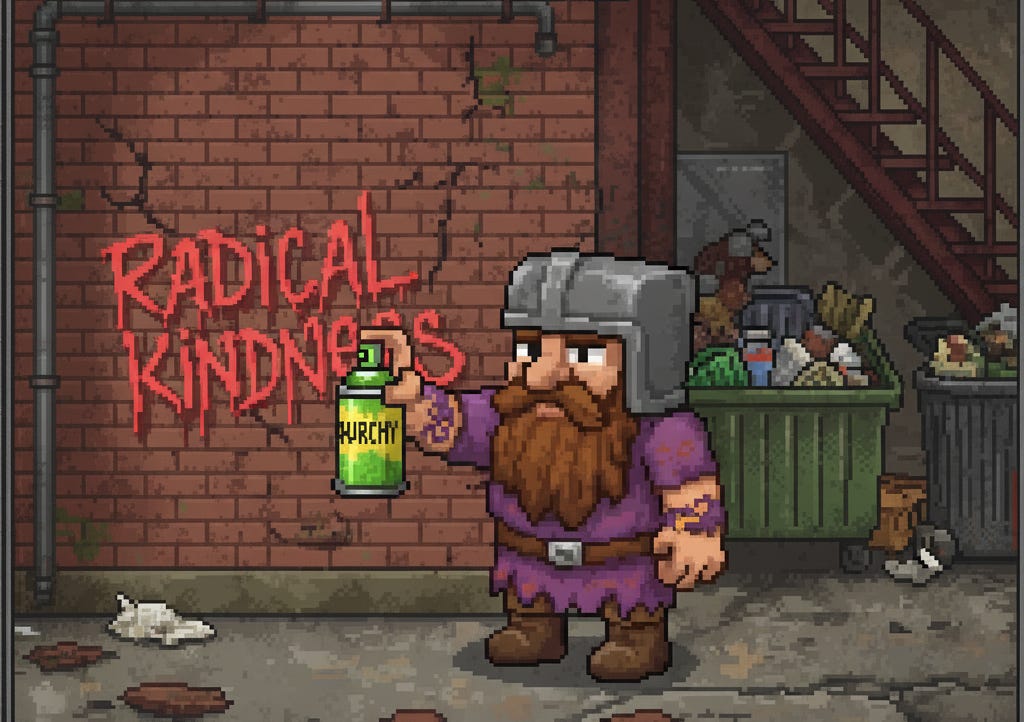
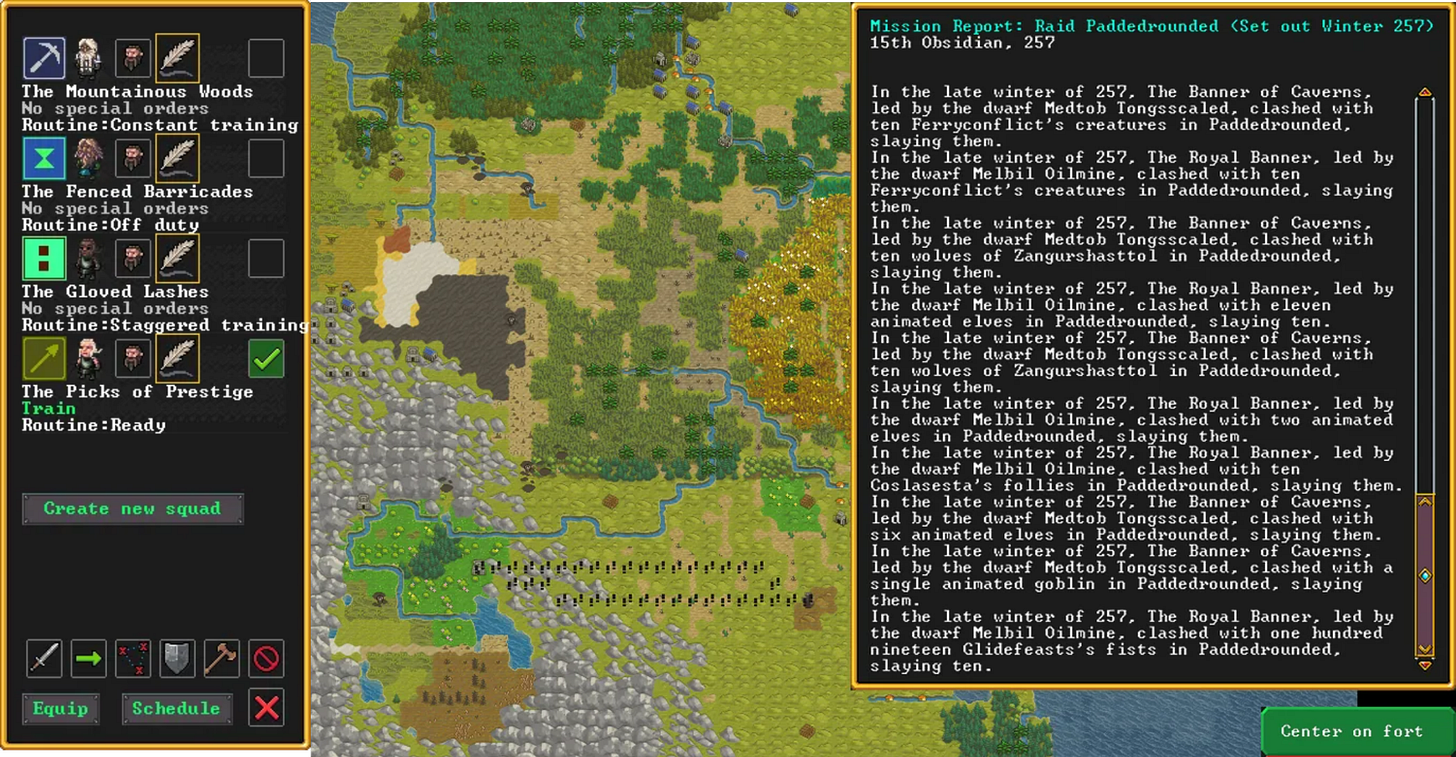
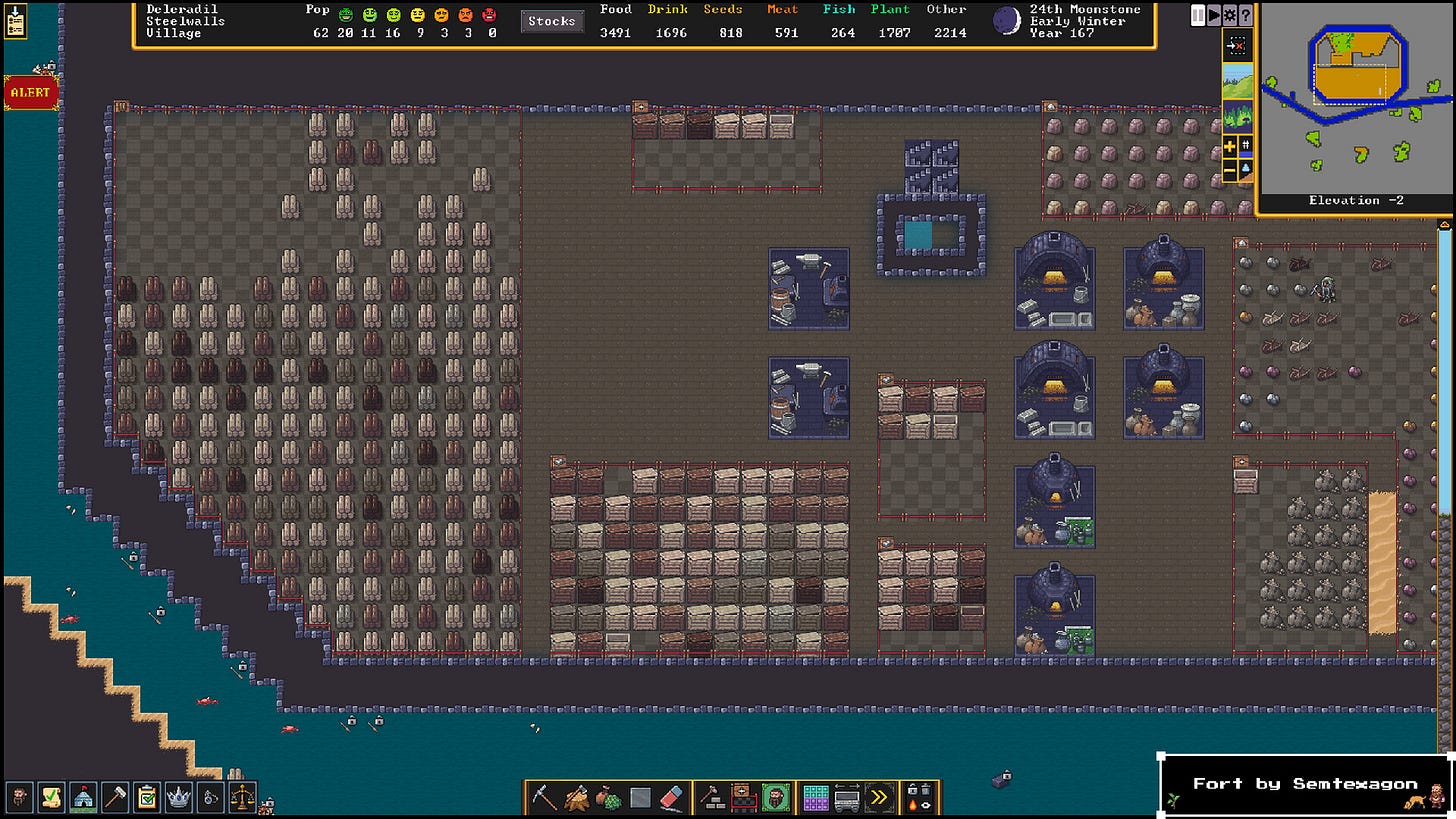
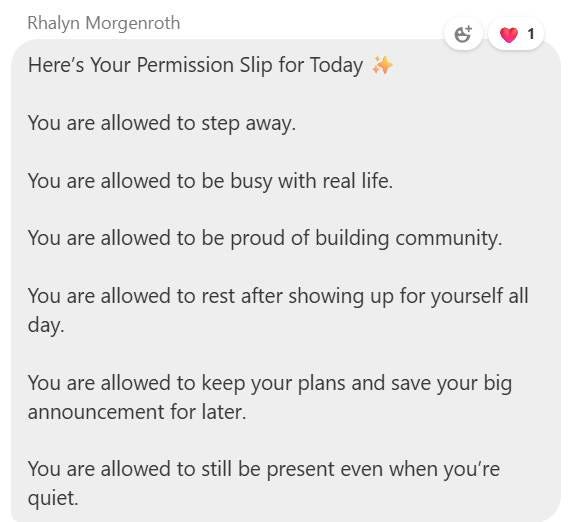






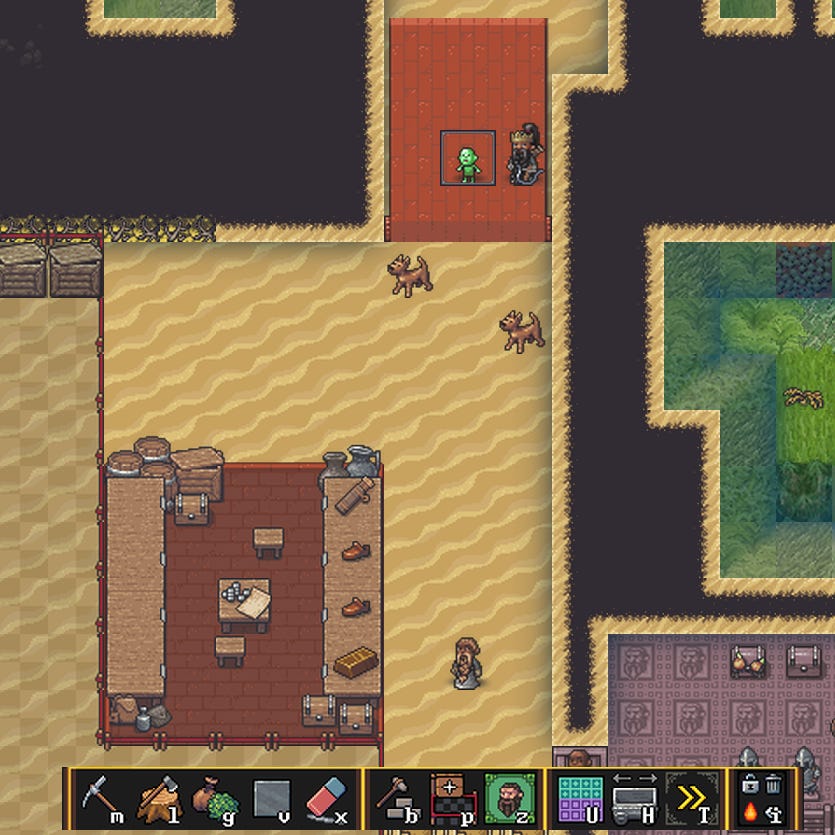

Nice piece and a great reminder Anthony. As a gamer, writer, chronic pain haver, and someone with a moral calling, everything in this article resonates with me. Thank you.